| WELKAM |
| .........................................WELCOME.........................................
The Central Malaita Students Association (CMSA) is a multi-dialect and cultural Student Group Consisting of students from Kwara’ae, Langalanga, Kwai and Ngongosila, Malaita Outer Islands, Kwaio and Fataleka.
Our vision and objective is to protect the norms and cultural values of our members while at the same time we enhance our academic knowledge and skills towards the promotion of development and the improvement of living standards in our respective regions.
.............................................DISCLAIMER...............................
The site welcomes any contribution by way of information, comments, news articles, photos etc from its members and interested members of the public to ensure we are well informed of all the developments in our villages, constituencies, regions, islands, country, region and the world at large as well.
However, any transmission of information, news and comments is intended only for the use of the members of the Association. Any use or dissemination of information provided in this site in other websites or medium of information is not the responsibility of the Association, and the Association cannot be held liable for it. The contents of this webpage, unless expressly stated, do not comprise the views of the Association or any representation by the Association, but are views of its individual members.
. |
| LOCATION |
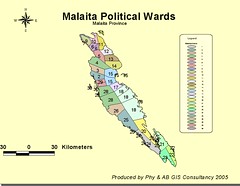 |
 |
| WHAT'S NEW |
- Central Malaita Student Association(CMSA) would include Malaita Outter Islands
student as of next year.That means if you are from Malaita Outter Islands, you are part of CMSA.
- This site is currently undergoing some major changes.
|
| NOTICES |
| I WILL BE AWAY FOR TWO WEEKS IN THE SOLOMONS. WHILE I AM AWAY, N.G, COULD YOU KEEP OUR SITE UPDATED WITH ALL THE LATEST NEWS FROM HOME. I WILL BE BACK ONLINE IN AUGUST - PM |
QUOTE OF THE DAY |
| "Youth is a blunder; Manhood is a struggle; Old age is a regret - (BENJAMIN DISRAELI (1804 - 1881)" |
 BENJAMIN DISRAELI (1804-1881) BENJAMIN DISRAELI (1804-1881) |
| CHAT BOARD |
| KU'AL HU'AN ALA'ANGA!!!.
|
| CLIPS OF THE TSUNAMI IN SOLOMON ISLANDS |
|
|
| HISTORICAL CLIPS OF THE SOLOMONS |
|
| OTHER SOLOMON ISLANDS CLIPS: MUSIC, SPORTS ETC |
|
| POSTERS |
|
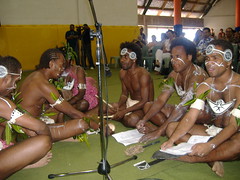
Vakavuku, SISA custom dancers administrator
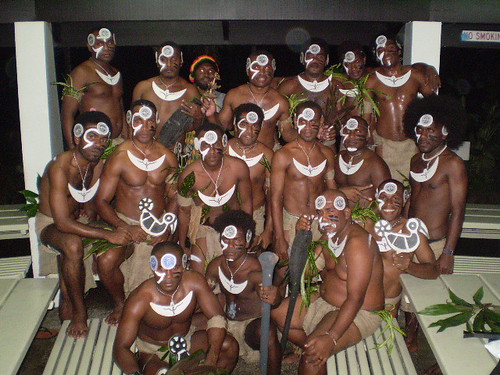
Central Malaita Dancing Group at the Tsunami Appeal at Laucala Campus administrator
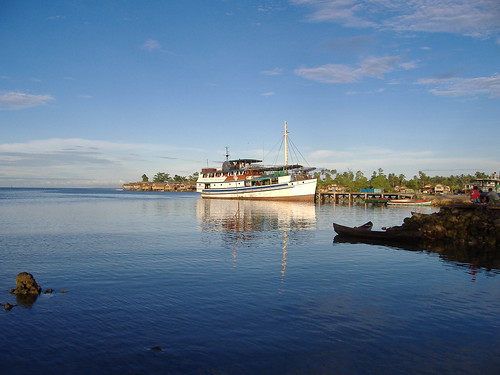
AUKI WHARF administrator
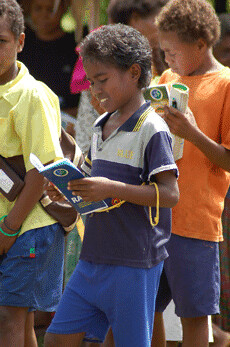
REACHING OUT....A young boy from Kilusakwalo reading through a pamphlet about RAMSIâs work in Solomon Islands which was
distributed during a meeting by a RAMSI Outreach Team to the village yesterday. PICTURE: MOFFAT MAMU administrator

A Malaita Ramo - JanesOceania.com

A house found it self submerged as a result of the Tsunami - Lifhaus.com">
 Jacinta Moli from Central Malaita representing Solomon Islands in Powerlifting during the Commonwealth Games Jacinta Moli from Central Malaita representing Solomon Islands in Powerlifting during the Commonwealth Games
administrator

Tennis Queen Irine George from Central Malaita" ">
|
|
| Friday, December 08, 2006 |
| Auditor-General wants reports dealt with |
Islandsbusiness News.
Evan Wasuka.
Prime Minister Manasseh Sogavare’s fight with Canberra has made great entertainment in the region—a classic tale of David versus Goliath—but the casualty in the diplomatic standoff has been the Solomon Islands’ endemic fight against corruption.
Seven corruption reports were tabled in the final sitting of the 2006 parliament. But none has seen the light of day with the country’s legislature distracted by a motion of no confidence against Sogavare and the government’s ongoing clash with Australia.T
he reports range from highlights of millions of dollars lost in questionable payouts by an Australian airspace management company, to dicey scholarship awards and theft of food supplies from the national hospital.
Disappointingly, not a single report has been raised for discussion by the Solomon Islands’ 50 members of parliament despite the public service’s appalling corruption record.
Auditor-General Floyd Fatai is upset at the lack of response to the corruption reports.
Among the fraudulent practices he has uncovered include—
• More than A$2 million paid out to private accounts of civil servants by Air Services Australia.
• Ghost employees on the treasury payroll.
• Illegal granting of citizenship by the immigration minister.
• Secret granting of education scholarships to ministers and permanent secretaries without the knowledge of national training unit.
• Theft of hospital food supplies by employees of the National Referral Hospital.• Payment of AusAid funds outside of the Ministry of Health’s consolidated account.
• Corrupt dealings in the subdivision of land at Kukum on the outskirts of Honiara.
“These reports should be debated in full and people need to be aware of what the government is doing” to stem out the rot,” says the 28-year old veteran of the country’s audit office.
Nestled in his wooden office block at the back of the government’s Finance Ministry, Fatai is hopeful the situation could be rectified by the next sitting of parliament, loosely scheduled for January or February 2007.
He says parliament’s Public Accounts Committee had been briefed about the reports.The committee will then issue a report advising parliamentarians on the next course of action at the next sitting of parliament.
Fatai says the committee’s job is to provide a guideline on the reports to parliamentarians.
But the challenge for the committee will be to ensure its report gets coverage since it will be sharing the stage with the tabling of the national budget.
Solomon Islands has always had issues with public corruption, but the problem escalated to gigantic proportions during the two-year-long ethnic tension.
With the government’s internal check mechanisms stunted, civil servants had free reign of government’s resources.
“Fraud and corruption were very obvious. People didn’t fear being caught because everybody else was doing it.
“Our biggest problem,” admits Fatai, “is the lack of financial records during the ethnic tension years (1999-2000).
“With government on the verge of collapse, maintenance of financial records was the least of the worries for government departments at the time.
“Most records for that period will have to be reconstructed.”
Fatai says the most common form of fraud is “asset mismanagement”—audit speak for stealing cash, revenue misappropriation, false financial statements and cases of tender rigging.
Questioned on whether fraud was more prevalent in certain hierarchies than others, he said, “everywhere and everyone was doing it.”
“Studies in fraud showed that 10 percent of employers have fraudulent intentions, that is the type of statistics you have to deal with.
“The only thing we can do is to reduce the opportunity for fraud.”
Since then, high risk areas prone to corruption have been identified, such as the fishing and logging departments. They have been targeted for special audits.
Fatai says the higher up on the risk scale a department is—the more frequent the audit checks will be carried out.
After five years of being in charge of the auditor-general’s office, Fatai says it is still catching up on its backlog of government audits.
A mammoth task awaits the audit team.
Its last report for the national government accounts tabled in October was for the 1997 financial year with the remaining nine years plus provincial government accounts yet to be audited.
But the Solomon Islands’ chief auditor says the country’s corruption problems cannot be pinned solely on the ethnic tension.
He says the blame lies squarely on the shoulders of past governments.“This office is one area where successive governments have made no commitment to improve.”
But the 2003 arrival of the Australian-led Regional Assistance Mission to the Solomon Islands (RAMSI) changed the status of the audit office.
“They made the government aware of the importance of the audit institution...that an effective audit institution is crucial to government receiving assistance from any donor institution or government,” says Fatai.
This has been reflected in government funding for the office growing from S$0.5 million in 2003 to its current level of S$3.7 million per annum.
All this would not have been possible without RAMSI’s timely intervention.
RAMSI currently funds the posts of the deputy auditor-general, group director, and audit advisors.
Despite the office’s isolation from the rest of government, like all things to do with the Sogavare government—where RAMSI or Australia is involved—politics is not far behind.
“We’ve had criticisms from within government circles that we have too many expatriates in our office, taking jobs from local auditors.” says Fatai.
“There may be a lot of private auditors out there—but there is a difference between private auditors and auditors for the public service.”
Fatai says he has no problems with expatriate staff. “They are experienced and part of the crew, and I as “auditor-general steer the ship to meet our objective,” he says.
“If people say we are serving other people’s interests, let them prove it, our work is in our reports.
“I can delegate work but I’m the one who has to sign off on all the reports,” he said.
“Our work is of international standards.”
As for the future of the audit office, Fatai says the key is securing a piece legislation that would give his office more independence.
Funding for the auditor-general’s office is currently tied to the Ministry of Finance while its manpower is dependent on the Public Service Commission.
Fatai says a new legislation needs to clearly define the role of the auditor-general to give it more practical powers to carry out its duties. |
posted by administrator @ 3:17 PM  |
|
| 2 Comments: |
-
vanessa bruno, air max, michael kors uk, coach outlet, michael kors, sac guess, true religion outlet, nike free pas cher, nike free, kate spade handbags, timberland, lululemon outlet online, michael kors outlet, north face, abercrombie and fitch, coach purses, ralph lauren, polo lacoste, oakley pas cher, north face, new balance pas cher, sac hermes, coach outlet store online, converse pas cher, longchamp, nike tn, air max pas cher, hollister, sac burberry, air max, michael kors pas cher, nike air force, hogan outlet, ray ban pas cher, louboutin, polo ralph lauren, true religion jeans, mulberry, sac longchamp pas cher, replica handbags, true religion outlet, nike blazer, vans pas cher, ray ban sunglasses, nike roshe, true religion jeans, nike roshe run pas cher, hollister, nike air max, air jordan
-
|
| |
| << Home |
| |
|
|
|
NAVIGATIONAL LINKS |
| SCHOLARSHIP SITES AND EMPLOYMENT OPPORTUNITIES |
|
|
| INTERNATIONAL NEWS |
|
|
| LOCAL AND REGIONAL NEWS |
|
|
| OTHER SOLOMON LINKS |
|
|
| SPORTS LINKS |
|
|
| TOK STORI - ALA'ANGA DISCUSSION FORUM |
|
|
| PHOTOS |
|
|
| Regional Bodies |
|
|
| Research Papers and Articles |
|
|
CENTRAL MALAITA STUDENTS |
- 1. ABA, Alan
- 2. ADIFAKA, Margaret
- 3. AFIA, Kabini
- 4. ANII, Dennis
- 5. ANII, Loretta
- 6. ATOA, Betty
- 7. BARE, Gavin
- 8. BATALOFO, Margaret
- 9. BIBIASI, Joseph
- 10. BISAFO, Samson
- 11. BUGA, Benjamin
- 12. BUKA, Glen
- 13. BUNABO, Steven
- 14. ENOCH, Derick
- 15. ETUA, Dennis
- 16. FARADATOLO, David
- 17. FUGUI, Dudley
- 18. GALASAU, Noel
- 19. GERENIU, Collin
- 20. GULIOA, George
- 21. IKA, Silas Phillip
- 22. HUNUEHU, Helen
- 23. IDU, Francis
- 24. KAO, George
- 25. KETEI, Allan
- 26. KINIOU, Aaron
- 27. KWALU, Jerry
- 28. KWATOO, Tony
- 29. LUITOLO, Steven
- 30. MAEKWARE,Tom
- 31. MANATE'E, Wesley
- 32. MANUSALO, Nelly
- 33. MISIBINI, ALick
- 34. MISIBINI, William
- 35. MISITE'E, John
- 36. OTTO, Steven Jude
- 37. RAU, Ishmael
- 38. SALEMANU, Martin
- 39. SIARANI, ANDY
- 40. SUABULU, Gray
- 41. TEGEROBO, Moses
- 42. TOITO'ONA, Joan
- 43. TORILOFA, Frank
- 44. UGULU, Primo
- 45. VAJAH, Jimmy
USP STAFFS AND FRIENDS
- 1. MAE, Paul
- 2. BUTAFA, Emanuel
|
| CURRENCY CONVERTOR |
|
|
| ARCHIVES |
|
|
| Archives |
| GREATEST HITS FROM SOLOMONS ISLANDS (1960s-1980s) |

|


|
|

vanessa bruno, air max, michael kors uk, coach outlet, michael kors, sac guess, true religion outlet, nike free pas cher, nike free, kate spade handbags, timberland, lululemon outlet online, michael kors outlet, north face, abercrombie and fitch, coach purses, ralph lauren, polo lacoste, oakley pas cher, north face, new balance pas cher, sac hermes, coach outlet store online, converse pas cher, longchamp, nike tn, air max pas cher, hollister, sac burberry, air max, michael kors pas cher, nike air force, hogan outlet, ray ban pas cher, louboutin, polo ralph lauren, true religion jeans, mulberry, sac longchamp pas cher, replica handbags, true religion outlet, nike blazer, vans pas cher, ray ban sunglasses, nike roshe, true religion jeans, nike roshe run pas cher, hollister, nike air max, air jordan